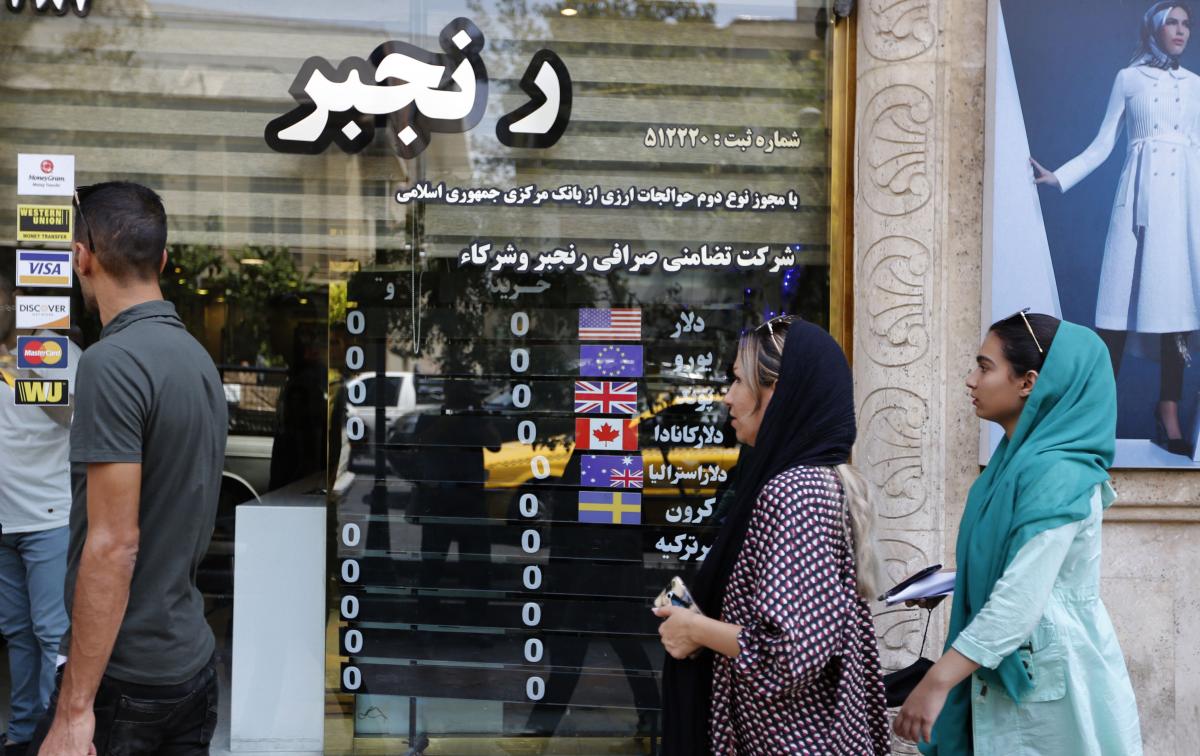ECONOMIC ANXIETIES GROWING AHEAD OF NOVEMBER 4
U.S. sanctions on Iran’s petroleum industry will kick in on November 4. President Trump has asserted that he aspires to shrink Iranian oil sales down to zero. Whether he comes close to that goal or not, it is clear that Iranian oil sales — and with it, the country’s economy — is about to take a substantial hit. According to Bloomberg tanker tracking data, the consequences have already begun, as buyers look elsewhere: Iranian oil exports fell to 1.7 million barrels a day in September, down from 2.5 million earlier this year.
Yet Foreign Minister Mohammed Javad Zarif struck an upbeat tone about economic matters during his visit to New York last week. He told a reporter that support from Europe to offset losses due to the U.S. withdrawal from the JCPOA has exceeded expectations. As Majalla reported last week, the EU has announced the creation of a “special purpose vehicle” to “assist and reassure economic operators pursuing legitimate business with Iran” — that is, to skirt U.S. secondary sanctions. The SVP remains to be tested, of course.
At the same time, there were signs this week that one JCPOA signatory — France — was souring toward Iran and the agreement. The context was a foiled bomb plot in Paris, allegedly hatched by Iran, which targeted a meeting of an Iranian opposition group based there. France responded by freezing the assets of the Iranian spy ministry. The action raised questions as to whether France will be able to fight Iranian-sponsored terrorism on the one hand and help Iran weather the blow of U.S. sanctions on the other.

People walk in front of a currency exchange shop in the Iranian capital Tehran on August 8, 2018. (Getty)
A DRAMATIC SPEECH AT THE UN
On the diplomatic front, Israeli prime minister Benjamin Netanyahu delivered new evidence about secret Iranian nuclear activity at a speech at the UN on September 27.
It won accolades even among some of his fiercest critics in Israel. The left-leaning newspaper Haaretz dubbed it “one of his most professional, effective, and persuasive appearances.” The assessment noted that after years under Obama in which Netanyahu’s warnings about Iran came across as the ranting of a “stubborn child,” few if anyone is dismissing him now.
“I am disclosing for the first time that Iran has another secret facility in Tehran,” he said, “ — a secret atomic warehouse for storing massive amounts of equipment and material from Iran’s secret nuclear weapons program.”
Netanyahu also noted what he saw as a positive side effect of Iranian aggression: “By empowering Iran, [the nuclear deal] brought Israel and many Arab states closer together than ever before. Israel deeply values these new friendships. And I hope the day will soon arrive when Israel will be able to expand peace — a formal peace — beyond Egypt and Jordan, to other Arab neighbors, including the Palestinians.”
The Prime Minister made a further charge of duplicity against Hezbollah, alleging that it was hiding its own facilitates — sites it uses to boost precision missiles — not far from the Beirut International Airport. Netanyahu warned that Israel “won’t let them get away with it.”
In response to the Prime Minister’s subsequent accusation that the International Atomic Energy Agency has failed to enforce the monitoring and accountability mechanism of the JCPOA, IAEA Director General Yukiya Amano insisted that his group had access to “all the sites and locations in Iran which it needed to visit.” He also implicitly cast doubt on the Prime Minister’s allegation of a new secret facility in Iran.
UNCERTAINTY OVER U.S. MILITARY PREPAREDNESS
Meanwhile, as tensions heat up, there are concerns that the Trump Administration’s stated willingness to confront Iran is ahead of its level of military readiness. In a report last week, U.S. military officials told the Wall Street Journal that the armed forces had not had an aircraft carrier in the Gulf since March — the first absence of that length in two decades. Meanwhile, Defense Secretary Jim Mattis is removing four Patriot missile-defense systems from Jordan, Kuwait, and Bahrain as part of a redeployment to deter Russia and China. The apparent contradiction between U.S. military priorities and political rhetoric has raised concerns that the rhetoric may be more bluster.









